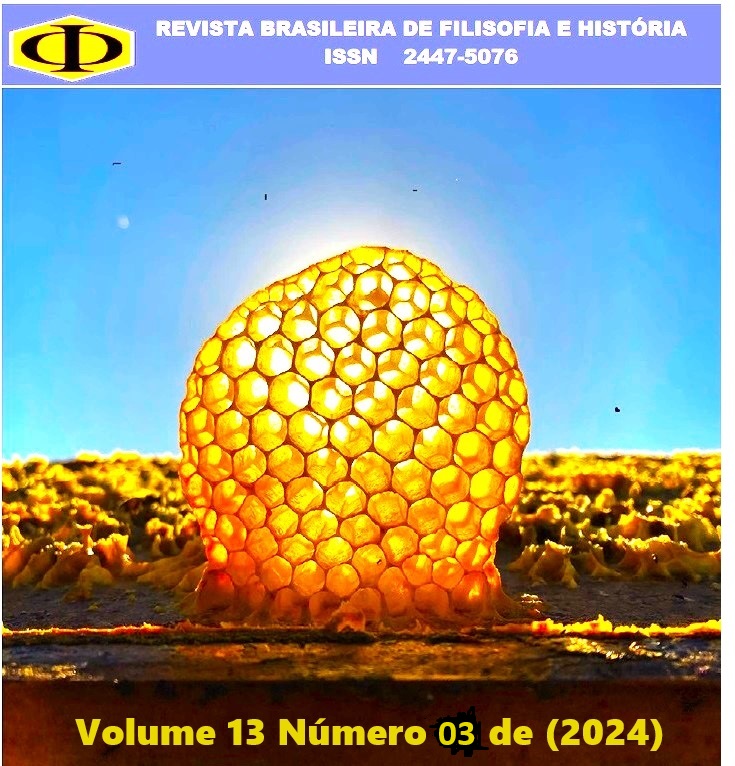O uso de inteligência artificial como ferramenta de apoio à linguística aplicada na educação especial inclusiva: revisão bibliográfica
DOI:
https://doi.org/10.18378/rbfh.v13i3.10904Keywords:
Artificial Intelligence; Education; Technology.Abstract
The subject of this study is the application of artificial intelligence (AI) as a tool to support applied linguistics in inclusive special education. The main objective is to investigate how AI can be used to develop technological solutions that adapt teaching materials, improve communication and facilitate personalized learning for students with special educational needs. The methodology adopted is a literature review, covering scientific research and relevant publications that discuss the integration of AI in inclusive educational contexts. Data collection included the analysis of case studies and research projects that exemplify the use of AI-based technologies to meet the diverse needs of students. The results obtained indicate that AI has significant potential to support the learning of students with disabilities, particularly in adapting teaching materials and overcoming linguistic and textual barriers. Technologies such as virtual assistants, voice recognition software and adaptive learning systems have proven to be effective in improving accessibility and personalizing teaching. It is concluded that, although AI offers promising opportunities for inclusive special education, continued investment in research and development, as well as teacher training, is needed so that these technologies can be fully integrated into the educational environment in an effective and ethical way.
References
ALVES, J. A.; FERREIRA, M. L.; BAPTISTA, M. J. Tecnologias Assistivas na Educação Especial: Perspectivas e Desafios. Editora Educacional, 2024.
D’ESPOSITO, M.; GATNER, M. Adaptação do Conteúdo Educacional com Inteligência Artificial. Revista Brasileira de Educação, v. 29, n. 3, p. 412-427, 2024.
DROSSINOU, L.; ALEXOPOULOS, T. IA na Educação: Impactos e Tendências. Springer, 2024.
GUEDES, F.; SILVA, A.; MENDES, R. Educação Inclusiva e Tecnologias Emergentes. Alteridade Editora, 2024.
JÚNIOR, L. C.; COSTA, F.; MOREIRA, A. Educação a Distância e Inteligência Artificial: O Futuro do Ensino. Educação e Tecnologia, v. 15, n. 2, p. 55-70, 2023.
NARCISO, J.; OLIVEIRA, P.; MARTINS, R. Personalização do Ensino com IA: Novos Caminhos para a Inclusão. Editora Acadêmica, 2024.
SANTOS, C. F.; OLIVEIRA, R.; SOARES, T. A Inteligência Artificial na Adaptação de Materiais Didáticos. Revista de Tecnologia Educacional, v. 18, n. 4, p. 233-250, 2024.
SALEH, N. Chatbots Educacionais e Inclusão Digital. Journal of Educational Technology, v. 12, n. 1, p. 40-55, 2024.
VIBERG, O.; MIKKELSEN, T.; KROGH, C. Sistemas de Tutoria Virtual e Aprendizagem Personalizada. Journal of Special Education Technology, v. 35, n. 2, p. 113-126, 2024.
WATERFIELD, B.; DAVIS, K.; GREEN, P. Desafios na Implementação de IA na Educação. Educação e Tecnologia, v. 16, n. 1, p. 89-102, 2024.
VASHISHTH, S.; ARORA, P.; SINGH, R. Aspectos Éticos e Práticos da IA na Educação. Ethics in Education, v. 22, n. 4, p. 299-312, 2024.
TORNUSCIOLA, C.; HERRERA, G.; LEITE, J. Modelos Híbridos de Ensino com IA e Tutoria Humana. Journal of Educational Research, v. 20, n. 3, p. 167-182, 2024.
DE SÁ, T.; NEVES, M.; PEREIRA, A. Educação a Distância e Tecnologia: Uma Revisão Crítica. Educação Online, v. 25, n. 3, p. 120-134, 2024.
Downloads
Published
Versions
- 2024-09-16 (2)
- 2024-09-12 (1)
How to Cite
Issue
Section
License
Copyright (c) 2024 Davi Milan, Tainara de Sousa Soares , João Batista Lucena, Antonio José Ferreira Gomes , Lucas Ferreira Rodrigues , José Walber Vieira de Oliveira , Gislaine Schon , Fabíola de Fátima Andrade Frimaio

This work is licensed under a Creative Commons Attribution-NonCommercial-NoDerivatives 4.0 International License.
Esta é uma revista de acesso livre, onde, utiliza o termo de cessão seguindo a lei nº 9.610/1998, que altera, atualiza e consolida a legislação sobre direitos autorais no Brasil.
Autores que publicam na Revista Brasileira de Filosofia e História (RBFH) concordam com os seguintes termos:
O(s) autor(es) doravante designado(s) CEDENTE, por meio desta, cede e transfere, de forma gratuita, a propriedade dos direitos autorais relativos à OBRA à Revista Brasileira de Filosofia e História (RBFH), representada pelo Grupo Verde de Agroecologia e Abelhas (GVAA), estabelecida na Rua João Pereira de Mendonça , 90 Bairro Petropolis em Pombal - PB doravante designada CESSIONÁRIA, nas condições descritas a seguir: 1. O CEDENTE declara que é (são) autor(es) e titular(es) da propriedade dos direitos autorais da OBRA submetida. 2. O CEDENTE declara que a OBRA não infringe direitos autorais e/ou outros direitos de propriedade de terceiros, que a divulgação de imagens (caso as mesmas existam) foi autorizada e que assume integral responsabilidade moral e/ou patrimonial, pelo seu conteúdo, perante terceiros. O CEDENTE cede e transfere todos os direitos autorais relativos à OBRA à CESSIONÁRIA, especialmente os direitos de edição, de publicação, de tradução para outro idioma e de reprodução por qualquer processo ou técnica através da assinatura deste termo impresso que deverá ser submetido via correios ao endereço informado no início deste documento. A CESSIONÁRIA passa a ser proprietária exclusiva dos direitos referentes à OBRA, sendo vedada qualquer reprodução, total ou parcial, em qualquer outro meio de divulgação, impresso ou eletrônico, sem que haja prévia autorização escrita por parte da CESSIONÁRIA.













